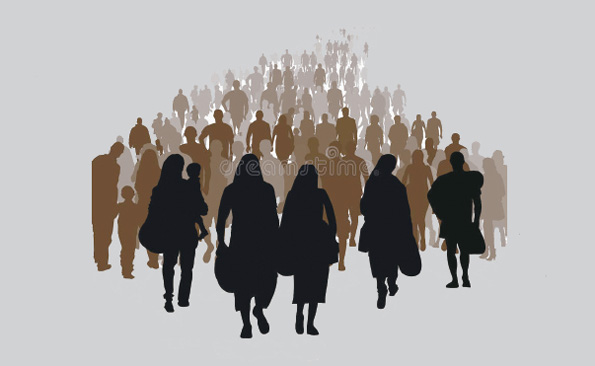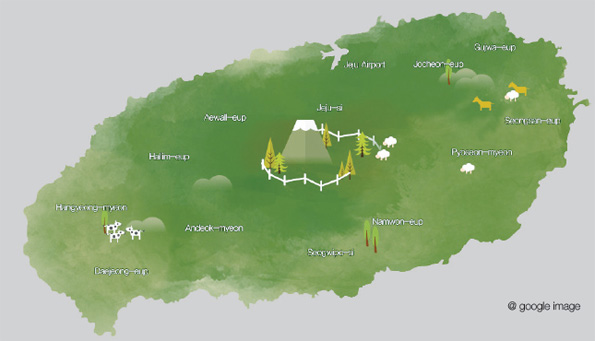
Koreans thought refugee problems were only other countries’ problems. The refugee problem was the hot potato that the rest of the global village agonized over. Koreans didn’t feel it was a severe problem before, but more than 500 refugees from Yemen have come to Jejudo. Koreans are divided about how to handle the refugee problem. -Ed.
How and Why Did They Come to Korea?
Religious strife arose in Yemen over the last three years. Yemen was a divided country like Korea. They reunified South and North Yemen. However, a constant conflict has lasted between the Sunni of South Yemen and the Shia of North Yemen. As time passed, this conflict spread from a civil war to an international war. This conflict has created numerous refugees. First, they entered Malaysia without visas, but the Malaysian government rejected an extension of their stay. Then, the refugees came to Jejudo without permits.
Korea is the only Asian country which joined the Refugee Convention. The refugees from Yemen were allowed to come to Korea because of international refugee laws. Jejudo permitted no-visa entry to invigorate sightseeing. According to the particular rules of Jejudo, foreigners entering Jeju airport can stay for 30 days, so the Yemen refugees decided to come to Jejudo.
Status of Refugee Screening
Korea is registered in the United Nations High Commissioner for Refugees (UNHCR). Therefore, Korea should follow international refugee laws. If refugees apply for refugee screening at the Minister of Justice, the country should screen them. The Immigration Office of Jejudo screens two or three people in a day. They confirm whether the refugees are ‘fake refugees’ or not through an individual interview and information from associated institutions. The Immigration Office of Jejudo usually screens them within six months. During the Yemen migration, many refugees converged in a short period, so the screening will take eight months. That will lead to three possible outcomes: non-approval, permission to stay for humanitarian reasons, or recognition as a refugee.
The Basis for Accommodating Refugees
The people who agree with accepting the refugees insist that Korea has been registered at the Refugee Convention since 1992, so Korea should protect refugees by following international refugee laws. The government doesn’t recognize every refugee who comes to Jejudo as a refugee. The government accommodates refugees by following the procedures of the law. According to last year’s statistics from the UNHCR, the refugee rate per 1,000 people in Korea was ranked 139th. Considering our economic power and status, 139th is so low. During the last 24 years, 4.1% of the people were recognized as refugees among the refugee applicants. The average recognition rate of 190 countries from around the world was 29.9%.
The people who agree with accepting refugees also argue that we should take refugees in from a humanitarian perspective. South Koreans also had a history of being refugees. During the period of Japanese colonial rule, the people who joined the independence movement in China, USA, and Russia were political refugees. The scale of refugees that occurred during the Korean War was about 6 million people, and they were scattered around Japan, USA, Canada, Europe, Australia, and South America. Also, UNKRA (United Nations Korean Reconstruction Agency) was created to help protect the refugees of the Korean War.
The Basis for Refusing Refugees
Some people who disagree with taking the refugees are worried about the possibility of higher crime rates. The possibility of crime is the main reason why they are against allowing the refugees to stay. At the end of 2015, there were sexual assaults near Cologne Central Station and a cathedral in Germany. Refugees from the Middle East and North Africa were behind the incidents.
They are also concerned about culture conflicts. Islamic culture is not well known among Koreans. The perceptions of Koreans are based on Christianity, Buddhism, and Catholicism. According to the National Statistical Office’s announcement in 2015, these three religions account for around 98.3% of the religions in Korea. Islamic culture might be awkward to Koreans because it has differences in religion, social system, and rituals. Koreans are probably not ready to accept the Islamic culture. The Blue House National Petition for abolishing the refugee law was signed by over 710,000 people, a record number.
Han Hae-ji (’16, School of business) said, “I heard that refugees of Islamic culture were included in the rape incident in the Cologne Cathedral of Germany.” She was worried about Islamic influence becoming more prominent, and when they come to Korea, she believes such tragedies might happen here. Moreover, she added that Islamic cultural characteristics do not synchronize with other cultures, so it might be the same in Korea.
Conclusion
Lee Ho-taek, a representative of The Refuge pNan, which is an international support center for refugees, claimed that exclusion, disgust, and discrimination are wrong. He said that “Islamaphobia is an inappropriate reaction. Muslim means a person who believes in Islam. Also, we don’t have to be afraid of them. It is under dispute whether Islam itself is a religion of fear or peace. We should love one another. However, if refugees arrive in huge numbers, people won’t be able to accept them, so it would be essential to control the rate at which they enter the country.”
Refugees should try to contribute to and integrate into Korean society. Also, past governments recognized them as refugees and didn’t take care of them, and the people weren’t even that interested in their welfare. The country should care about the refugees after recognizing them as refugees and help them to integrate into society. Countries which generated refugees should also make an effort to recover stability. The public should take more interest in this issue.
By Park Jeong-min l jm38@cbnu.ac.kr
By Park Joo-hyun l jh38@cbnu.ac.kr


 All
All Feature
Feature






 Park Jeong-min & Park Joo-hyun
Park Jeong-min & Park Joo-hyun











